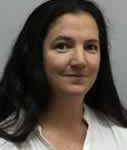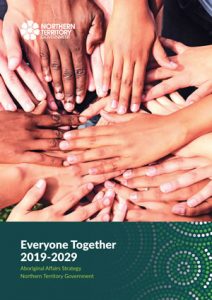November 2019
In this issue
- From the President
- Welcome 2020 ACAL committee
- Thank you to outgoing committee members
- 2020 ACAL Conference
- 2019 ACAL Conference papers
- ‘Plan a project’ webinar
- Profiling literacy and numeracy specialists – Deb Guntrip, Tasmania
- Mini conversation restarter: Australian literacy policy
- UNESCO recognises adult literacy issues
- Volunteer Tutor Training Online in Tasmania
- I Am Ready Program – a success with NR TAFE students
1. From the President
Since our last newsletter a very successful conference was held in Sydney, creating wonderful networking opportunities and stimulating discussions that will continue over the next months as we head toward the 2020 conference in Canberra. In another professional development activity, Australian Training Awards winner Lidia Lipkiewicz joined us for a webinar presentation. This was followed by the AGM where we farewelled some committee members and welcomed others.
I was unable to attend the conference and AGM, but have heard only praise for both and express warm thanks to the NSWALNC committee for their work in presenting the conference. Also many thanks to all the conference speakers and participants, and to Lidia for her AGM presentation. Once again the dedication of volunteers driven by a passion for education astounds! Thank you to all.
On a personal note I would like to send my thoughts and best wishes to those impacted by fires and other natural disasters over the past weeks. Stay safe.
Jo Medlin, President
2. Welcome 2020 ACAL committee

Who are these people?
What’s their connection to ACAL?
3. Thank you to outgoing committee members

Daniella Mayer

Vicki Hartman
Vicki Hartman held the position of ACAL secretary for many years.
As a member of the executive, Vicki contributed her expertise and knowledge about adult literacy and numeracy issues in a considered and thoughtful way. Vicki patiently kept us on track, getting everyone gathered for meetings, leading agenda setting and preparing minutes with incredible timeliness – which is no mean feat for a committee spread across the country and meeting by teleconference!
It was a pleasure to work with Vicki on the executive and committee. We thank her sincerely and wish her all the best for the future.

Cheryl Wiltshire
Cheryl Wiltshire steps down as Western Australia representative. Cheryl was a key brains trust for the committee. Her experience on ACAL and how it functions was an invaluable support to Daniella and myself when we stepped into the executive roles. Cheryl made substantial contributions to ACAL advocacy activity, bringing an in-depth understanding of issues that encompassed both policy knowledge and a solid understanding of best practice, including the ability to look at issues from multiple perspectives. Thank you Cheryl for all your work in adult literacy and for your support to the committee.

Michele Sutcliffe
Michele Sutcliffe represented South Australia on the ACAL committee.
Michele was the ACAL link to the South Australian Council for Adult Literacy (SACAL) and reported on adult literacy and numeracy from a SA perspective.
Michele represented ACAL on the Reading Writing Hotline Steering Committee, an invaluable part of the adult literacy landscape.
Thank you Michele for being part of the committee.
4. 2020 ACAL Conference
Get excited and start researching things to do in Canberra!
The 2020 ACAL conference will be held in the state’s capital – details to follow soon.
5. 2019 ACAL Conference papers
Papers and presentsations from the conference are being prepared.
When available, they’ll be linked from the ACAL website and also mentioned in the next newsletter.
6. ‘Plan a project’ webinar
 Presented at the AGM October, 2019
Presented at the AGM October, 2019
Presented by Lidia Lipkiewicz, winner of the Australian Training Award in Excellence in Language, Literacy, Numeracy Practice (2018)
‘Plan a project’ is a weekly, project-based program that develops language, literacy and numeracy skills as well as employability skills.
Provides lots of practical hands on ideas including rough lesson plans and rough course outlines and a list of tried and tested resources that have been developed for the learner who is seeking work.
Watch the webinar video (YouTube)
7. Profiling literacy and numeracy specialists
Since the introduction of the TAELLN Certificate lV unit we have received many queries asking what defines a literacy and numeracy specialist. The LN field is diverse and experience and qualifications vary. In a recent submission to the FSK review, ACAL considered that the level of qualification and experience of those working effectively in the field is not necessarily correlated to their degree of impact, but we believe specialised qualifications and experience are likely to result in good practice. See the full statement here.
In this section we profile LN specialists to demonstrate the range of qualifications and experience that lead to expertise in the field. We encourage all readers to refer to the National Framework as a reminder that the TAELLN411 unit is an awareness unit and is at the start of a journey in LN teaching. For those wishing to extend from awareness to developing teaching skills we encourage shadowing, mentoring and training – several RTOs are currently delivering the TAE80113 Graduate Diploma in LLN Practice and information can be found at training.gov.au
This month we feature Deb Guntrip, from Tasmania.
 Debra Guntrip is a finalist in the Australian Training Awards for the Excellence in Language, Literacy and Numeracy Practice Award. Her role delivering workplace literacy with TasTAFE has led her to work in a range of workplaces supporting employers and members of their workforces to strengthen language, literacy and numeracy skills on the job.
Debra Guntrip is a finalist in the Australian Training Awards for the Excellence in Language, Literacy and Numeracy Practice Award. Her role delivering workplace literacy with TasTAFE has led her to work in a range of workplaces supporting employers and members of their workforces to strengthen language, literacy and numeracy skills on the job.
Deb moved to Tasmania with her family about 20 years ago. After a successful career running her own hairdressing business, she saw the move as an opportunity to start a new career that wasn’t as tiring on her arms. She enrolled in the Bachelor of Adult and Vocational Education and volunteered with Adult Literacy and Basic Education Tasmania. After graduating, she moved into paid work establishing community projects using accredited training. She loved the role of tailoring projects for community groups.
8. Mini conversation restarter: Australian literacy policy
Jo Medlin
While Australia has committed to taking part in the next PIAAC cycle, we still have no commitment from the Australian government that remote communities will be involved in the survey. ACAL contends that omitting remote communities will create an inaccurate picture of the state of adult literacy across Australia. As discussed in previous newsletters, the strength of data that comes out of PIAAC must always be viewed with a critical lens, but PIAAC data at this stage is the best available. How will the Australian government and state and territories address adequate provision for adult literacy without understanding the extent of need for services?
I was dismayed to read NT government’s recent Everyone Together strategy because their plan under education makes no mention of adult education. There are few adult literacy and numeracy providers in NT and some of those currently providing classes intend to cut delivery in 2020. ACAL will contact the NT government for comment and will provide an update in the next newsletter.
9. UNESCO recognises adult literacy issues
UNESCO has noted the following:
“…although literacy provision at a global level has advanced over the past five decades, there are more adults without basic literacy skills now than there were 50 years ago. Moreover, different demands for different literacy skills are emerging with the development of technology in society and economy. To address this urgent situation, UNESCO proposes a new strategic vision and four priority areas to promote youth and adult literacy through advocacy, research, policy support and programmatic actions.”
10. Volunteer Tutor Training Online in Tasmania
Nic Duffy and Jane Shepherd, teachers from TasTAFE, have spent the last two years collaborating with Andrea McMahon from Libraries Tasmania to develop an online training course for volunteer adult literacy tutors. The platform has been successful in engaging about 120 volunteers across the state who regularly give up their time to work with others who want to strengthen their literacy skills. The volunteer tutor program in Tasmania is made possible by a network of dedicated literacy coordinators employed in many of the Libraries Tasmania sites around the State.
Until now the resource has been used exclusively by Libraries Tasmania. In 2020, TasTAFE will make the program available to the broader Tasmanian community at no cost. This is an exciting opportunity for people across Tasmania who want to further develop their expertise in literacy tutoring.
It is anticipated that the course will be available commercially in other states in the near future.
11. I Am Ready Program – a success with NR TAFE students

A new program designed to engage youth and set them up with a job ready ‘tool kit’ has been ahuge success at North Regional TAFE’s Kununurra campus.
The program I Am Ready, has been developed and coordinated by North Regional TAFE Aboriginal Education Support Officer, Natthanyal Hunter. The program had men aged from 18 – 45 come, go, and even start mid-way through. It wasn’t long before nine dedicated students were turning up to class early ready to learn some new skills.
Natthanyal’s students recently completed a taste of trades component, taking part in hands-on learning blocks in construction, engineering, automotive and art, and have since made progress in their resume writing and worked towards obtaining a driver’s licence.
“I want to do more for my mob. The best part is seeing the smiles on the boys’ faces. I want them to succeed and grow and be job ready,” Natthanyal said.
Natthanyal’s students recently graduated from the program and a small ceremony was held on campus.

